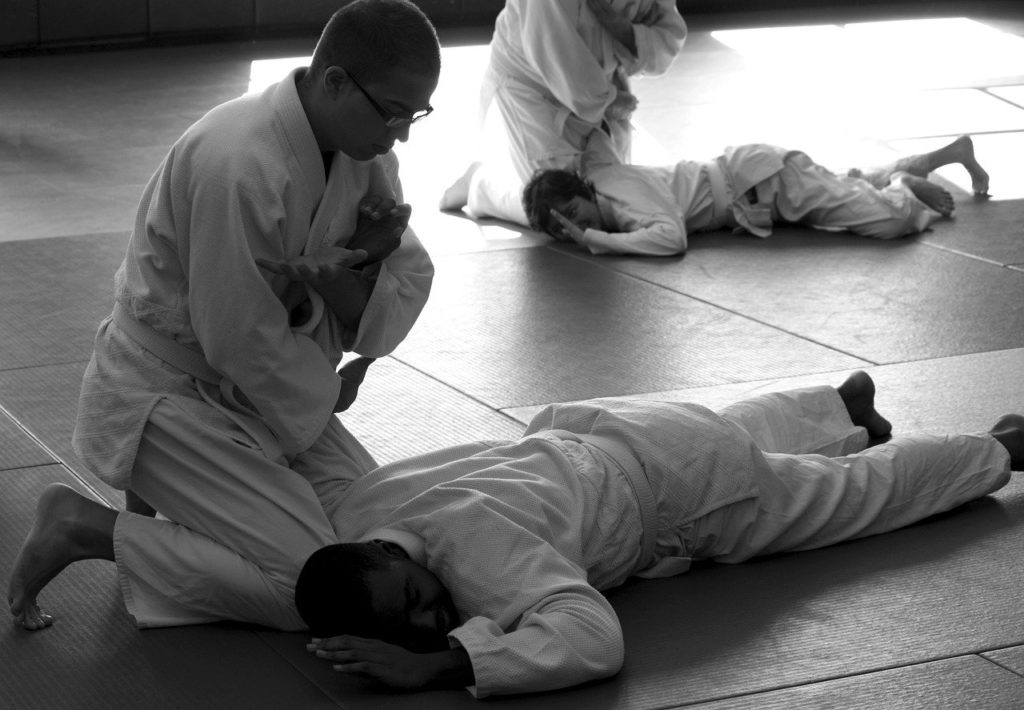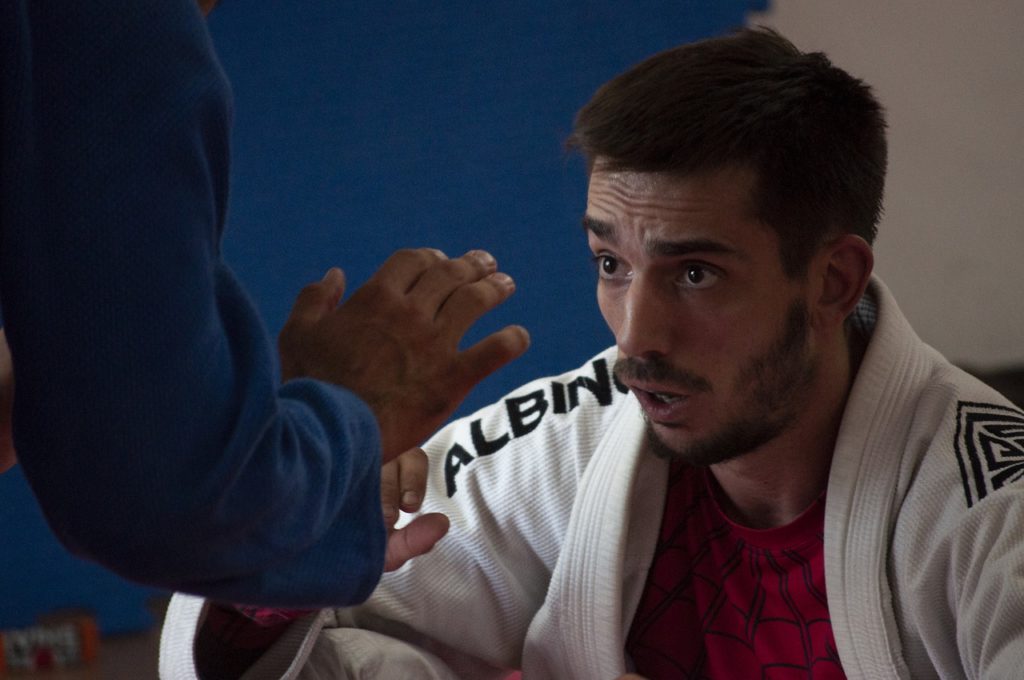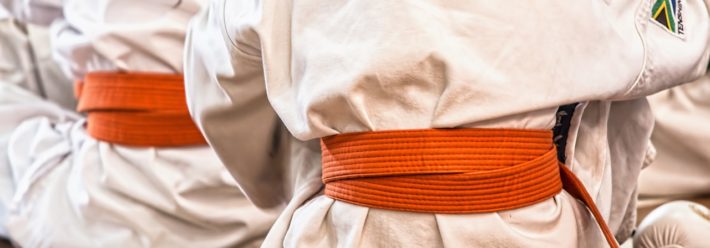When thinking about the many types of martial arts, you may imagine the physical benefits they offer, such as self-defense, but actually, the practice goes much deeper than that. The underlying purpose of martial arts is to instill self-control and inner calm. Studying any one of the martial arts allows you to develop a strong sense of self as well as respect for the physical and mental processes necessary to excel in it.
As we begin to understand more about martial arts and their purpose, it is becoming clear that practices like jujitsu, karate, and tae kwon do can help ease stress and anxiety. Experts in martial arts have long been aware of the physical and mental benefits of these activities, while the scientific community has studied how people can use martial arts to manage ailments. Trauma experts have even indicated that sports like karate and mixed martial arts (MMA) can benefit people with post-traumatic stress disorder (PTSD). If you’re wondering how you can use martial arts to combat stress, anxiety, or other disorders, keep reading to learn about their major benefits.
Mental Benefits

If you think martial arts are only about punching, kicking, and splitting wooden boards with your bare hands, then you may be surprised to learn that this idea is largely precipitated by TV and movies. The study of martial arts serves to develop mental fortitude while reinforcing your confidence, self-respect, and ability to cultivate and maintain healthy boundaries.
The mental benefits of martial arts have been shown to have a positive effect on those who deal with social anxiety and social phobias by getting them more comfortable with close interactions with others. For people who are generally withdrawn, taking a martial arts class is a way for them to be around like-minded people, and it serves as an important pathway to fostering friendships and developing trust.
Additionally, those who have fear-based anxiety will develop a new level of confidence when they are alone. As many forms of martial arts emphasize self-defense, those who progress through the practice will undoubtedly become more confident in their ability to protect themselves, which translates into feeling more powerful in general.
Physical Benefits

Martial arts can be viewed as both a mental and psychical practice. As such, regular participation in martial arts provides many of the benefits of other forms of exercise.
In a study conducted by researchers at the National Center for Global Health and Medicine and Hamasaki Clinic in Japan, people who regularly practiced tai chi saw physical benefits such as lower blood pressure and reduced risk of stroke. Additionally, the study pointed out that martial arts like karate and kung fu were effective at maintaining weight, regulating blood sugar, and minimizing arterial stiffness. Though more studies are needed, the association between martial arts and physical benefits is clear.
Some Precautions When Practicing Martial Arts
While martial arts improve physical and spiritual well-being, it does not mean that you should not take caution. Before beginning any martial arts class, it is important to consult with a physician to make sure you are a good candidate for this type of activity. Certain poses and moves may be difficult depending on your health, so make sure you indicate which type of martial arts you are considering so your physician can properly evaluate you. The last thing you want to do is get involved in training that could lead to injury.
Additionally, you will want to research potential martial arts instructors and read any available reviews on them. Consider meeting with instructors before signing up for a class to gauge their instructional style. You may also want to sit in on a class before engaging. If you are completely new to martial arts, it is better to start with a class for beginners and gradually progress to more challenging classes.
Regardless of which form of martial arts you are considering, it’s important to understand the physical and the mental benefits of each type. By considering these tips, you can ensure that you know both the positive and negative aspects of martial arts and use the principles and techniques involved to improve your mental and physical well-being.
